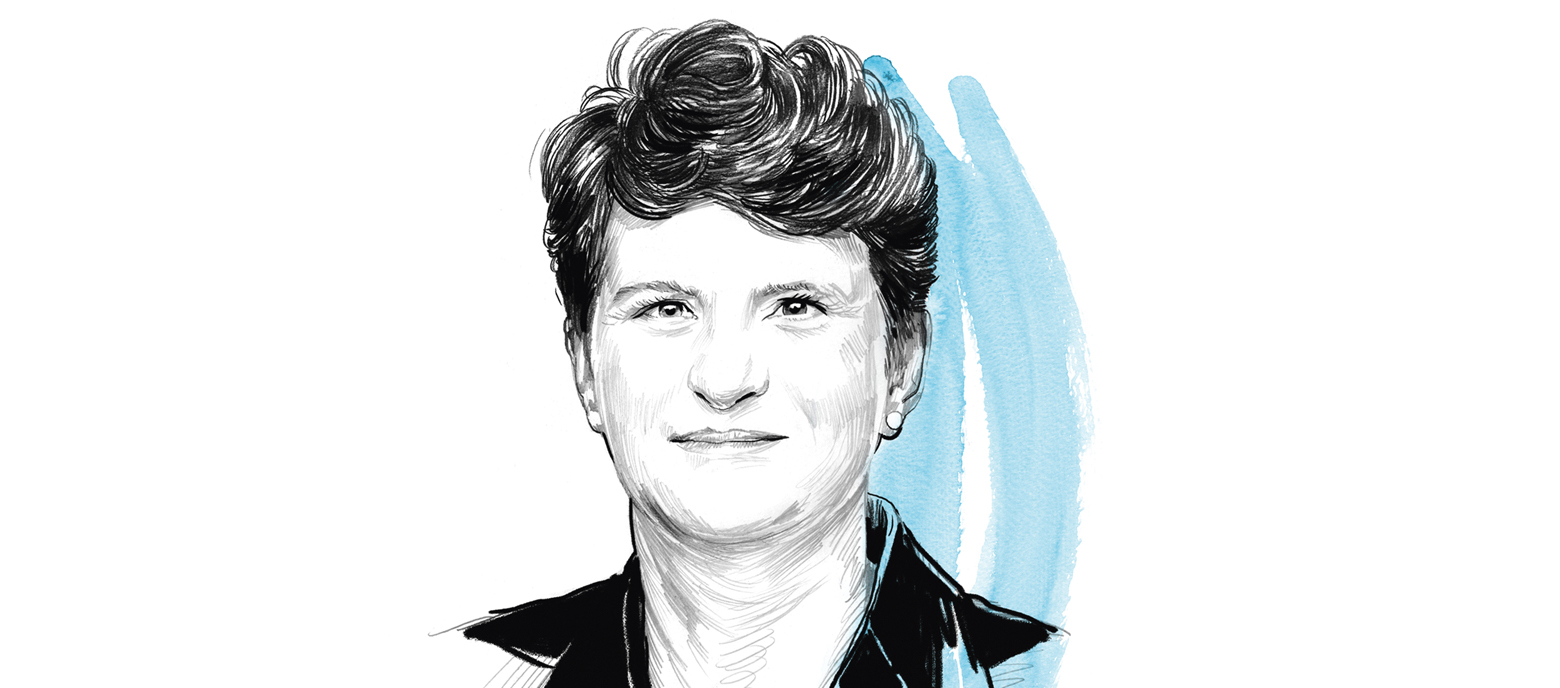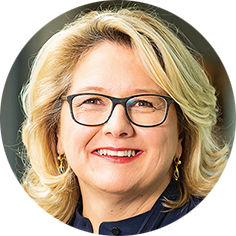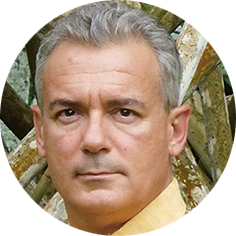Change
Much achieved, but still a lot to do
Ten exciting years are now behind us. Three institutions, namely DED, InWEnt and GTZ, have become one: the Deutsche Gesellschaft für Internationale Zusammenarbeit, or GIZ for short. That was a major shake-up of the German development cooperation landscape and it brought massive changes to our organisation. In retrospect, we managed this merger well. It was not easy, it took its toll, and it was a painful experience at times – but today we are a unified organisation with global operations.
Looking back, we can say today that the reorganisation came at just the right time. It prepared us for the many changes that have since influenced us from the outside, the most obvious being the increase in the number of fragile contexts. The world has become significantly more unsettled over the last ten years. Today, two thirds of our partner countries are marked by crises, violence and conflicts. This is currently true of Afghanistan, but also of Syria, Yemen and Mali, and in an especially harrowing way, it is true of Ukraine.
No two cases are the same. There are always new factors involved: sometimes a civil war, sometimes weak governments, sometimes both, while other regions are hit by natural disasters or struck by famine. Because of this, every situation has its own particular challenges and tasks for an organisation like GIZ. Yet we always try to achieve results and make a difference in a positive way, even if the impact is not always immediately visible. Take the example of promoting agriculture in Mali, and thus helping to enhance food and nutrition security in a country shaken by fighting. Or training farmers in Nigeria to increase their harvests. Or improving health care in Yemen and organising schooling in refugee camps.
Forced displacement and migration in focus
Worsening instability frequently forces people to flee their homes and seek safety elsewhere. We can see this all too clearly at the moment with the war in Ukraine. Syria, Afghanistan and many other conflicts have also triggered huge refugee flows, which has made the issue increasingly important for GIZ. Since 2015, we have been focusing on forced displacement and migration very closely – and repeatedly due to new waves.
The situation has been further aggravated by the COVID-19 pandemic, which has kept us in its grip for over two years now, exacerbating poverty and inequality, and posing an acute risk to development progress. Above all, vaccination rates in many developing countries are still alarmingly low, in contrast to the industrialised world. In Niger, for instance, just under seven per cent of the population have been vaccinated – the figure in the Democratic Republic of the Congo is closer to one per cent.
We are trying to address this by combining short-term support with the general strengthening of health systems. In the wake of the 2014 Ebola epidemic in West Africa, for instance, GIZ established the German Epidemic Preparedness Team (SEEG), which has also provided a valuable service during the COVID-19 pandemic. The SEEG is made up of mobile teams. These provide test kits, protective equipment and laboratory apparatus among other things, and also train health staff.
‘We must not lose sight of the global vaccination campaign, given that the alternative is the risk of mass poverty and hunger.’
As a general rule, the following applies: driving the worldwide vaccination campaign forward is still a major challenge, and German development cooperation is very actively involved. We must not lose sight of this, given that the alternative is the risk of mass poverty and hunger. Vicious circles like this must be broken at an early stage. It is important to ensure that developing countries have sufficient vaccine supplies.
And in spite of all the major security issues we are currently dealing with, we must not lose sight of the Sustainable Development Goals (SDGs). GIZ sees itself as an advocate of the SDGs, which were adopted by the international community as a shared roadmap for the period up to 2030. Along with the Paris Agreement on climate change, they form the backbone of the international agenda for the coming years. It is already clear that the 2020s will have to be the decade of realising the SDGs.
A third of our portfolio is linked to the climate
With the goals and standards in place, it is now a case of forging ahead with the transformation to bring about a more equitable and a greener future. As has been the case over the last few years, GIZ is doing all it can to support change in this spirit. One third of our entire portfolio is now related to climate issues. In Indonesia, for instance, we are promoting renewable energies and establishing and developing the recycling sector. But we don’t only pursue ambitious goals in our projects. They also apply to GIZ itself. And here too we are making considerable progress: since 2021, our operations inside and outside Germany have been climate neutral. That is an important milestone!
The last few years have therefore brought many changes. Some were welcome, others less so. But as an organisation with worldwide operations, we need to be able to handle both. And that means that we must continue to evolve to ensure that we are able to cope with the constantly changing context. This is all the more relevant since the scope and volume of our work have increased significantly. Today we address more issues, have a higher turnover and more GIZ staff than we did ten years ago. Our workforce has grown by almost 7,000 since 2011. In total, around 60 per cent of staff are women.
A surge in digitalisation for us and for our partners
To allow us to adjust to this more turbulent world, we adopted a new Corporate Strategy three years ago. It has made us faster, more flexible and more efficient. It provides for new ways of working and helps us move capacities quickly from A to B – all of these things are vital in volatile times. It also includes a new digitalisation boost, not only in our dealings with partner countries and in our projects, but also within GIZ itself.
It has often been said, but that doesn’t make it any less true – if we fail to make greater use of digitalisation, we won’t come anywhere near achieving the SDGs. And without digitalisation, we would find it very difficult to operate at all, especially in fragile contexts. Remote management is the key in this regard. Here too, we are in the middle of a significant upheaval which we cannot avoid in either our private lives or professionally.
When I look back today at GIZ over the years, it is true to say that the only constant has been change. There has hardly been a year – hardly even a month – in which some unforeseen event or another has not kept us on our toes. We look back with satisfaction at what we have achieved, but above all we see this as an incentive to equip ourselves well for the next ten years of international cooperation. There is more than enough to do – the world remains a turbulent place.
akzente 1/2022


